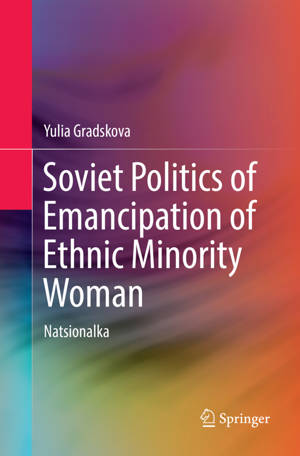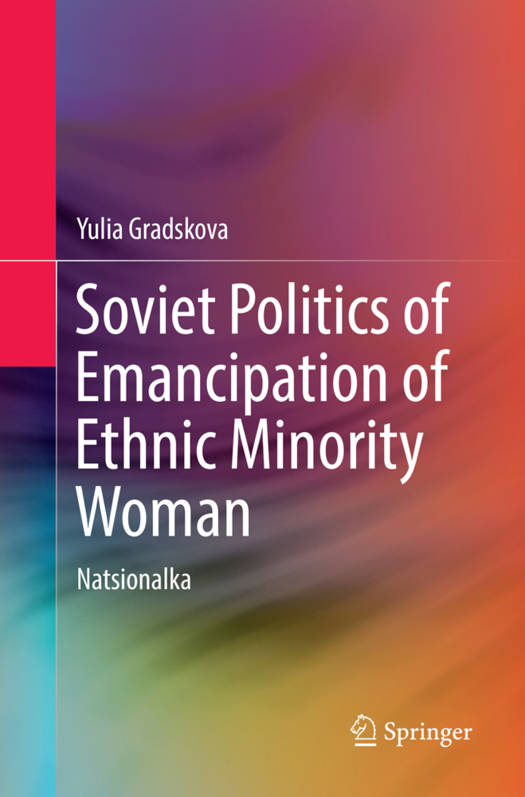
- Retrait gratuit dans votre magasin Club
- 7.000.000 titres dans notre catalogue
- Payer en toute sécurité
- Toujours un magasin près de chez vous
- Retrait gratuit dans votre magasin Club
- 7.000.0000 titres dans notre catalogue
- Payer en toute sécurité
- Toujours un magasin près de chez vous
Soviet Politics of Emancipation of Ethnic Minority Woman
Natsionalka
Yulia GradskovaDescription
This book provides a new perspective through a closer look on "Other", i.e. ethnic minority women defined by the Soviet documents as natsionalka. Applying decolonial theory and critical race and whiteness studies, the book analyzes archive documents, early Soviet films and mass publications in order to explore how the "emancipation" and "culturalization" of women of "culturally backward nations" was practiced and presented for the mass Soviet audience. Whilst the special focus of the book lies in the region between the Volga and the Urals (and Muslim women of the Central Eurasia), the Soviet emancipation practices are presented in the broader context of gendered politics of modernization in the beginning of the 20th century. The analysis of the Soviet documents of the 1920s-1930s not only subverts the Soviet story on "generous help" with emancipation of natsionalka through uncovering its imperial/colonial aspects, but also makes an important contribution to the studies of imperial domination and colonial politics. This book is addressed to all interested in Russian and Eurasian studies and in decolonial approach to gender history.
Spécifications
Parties prenantes
- Auteur(s) :
- Editeur:
Contenu
- Nombre de pages :
- 196
- Langue:
- Anglais
Caractéristiques
- EAN:
- 9783030075750
- Date de parution :
- 26-12-18
- Format:
- Livre broché
- Format numérique:
- Trade paperback (VS)
- Dimensions :
- 155 mm x 235 mm
- Poids :
- 453 g

Les avis
Nous publions uniquement les avis qui respectent les conditions requises. Consultez nos conditions pour les avis.






